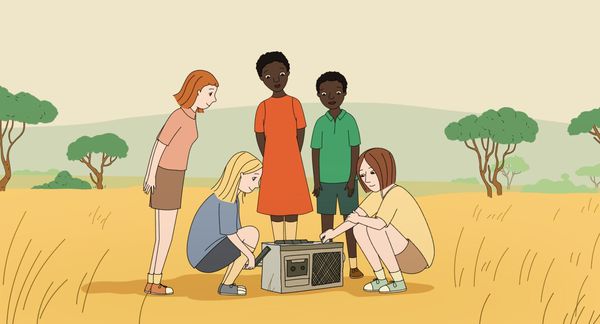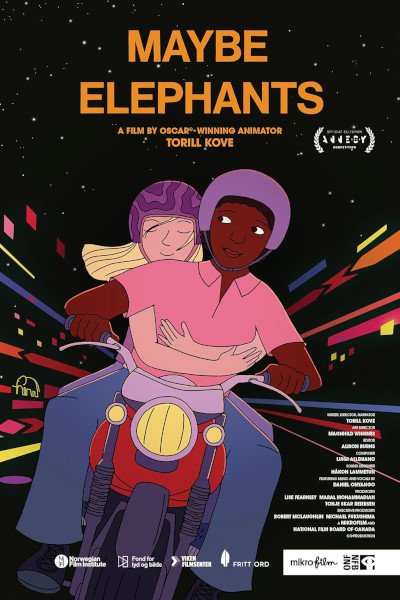Eye For Film >> Movies >> Maybe Elephants (2024) Film Review
Maybe Elephants
Reviewed by: Jennie Kermode

Musing on the nature of memory and the pursuit of happiness, Torill Kove’s Oscar-shortlisted short animation, Maybe Elephants, is a very personal tale. It’s adapted from the writer/director’s own recollections of a period during her teenage years in which her Norwegian family decamped to Nairobi. Her mother was trying to escape a cloud of depression but, of course, such things are not easy to leave behind. Her parents thought that they would be useful there, helping the locals, but gradually came to understand that they were fish out of water, whilst she and her two sisters eased into Kenyan culture as they grew up.
The film’s strength lies in its approach to capturing two different worlds and establishing, at a visual level, a sense of the culture clash that affects different family members in different ways. Scenes in which the girls acquire boyfriends with motorbikes and go out partying use blocks of vivid colour to convey motion and complement the embrace of noise; these are matched by the new colours appearing on their faces, make-up simultaneously codifying independence and absorption. Around the parents the colour palette is more restrained, suggesting both that they are less excited, less interested in embracing the opportunities around them, and that they are less aware of how Kenya differs from what they are used to.

The title comes from a trip out into the bush on which the writer/director/heroine (who won an Oscar in 2007 for The Danish Poet) remembers her mother shooing away a group of elephants from a place where they wanted to camp – something locals would likely have more sense than to attempt. It’s one of a series of decisions made on that trip which straddle the line between heroism and stupidity. But was it real? Later it will be called into question. One of the sisters recalls something different. In making a record of the event, the filmmaker is forced to acknowledge the uncertainty inherent in memory and, perhaps, in the past itself.
This uncertainty might be part of what the mother was seeking – something to break up the perceived monotony of her life, to ease the pressure. Her precise thinking remains obscure to the others, and gradually they recognise the separateness between the rest of them, too. A growing awareness of the aloneness of life sits side by side with the discovery of Kenyan ubuntu, of a warmth and care coming from strangers which offers a different way of relating to the world. The growing awareness of possibility offers freedom, but also the loss of the idealised family unit which we see briefly at the start. Was life ever really that perfect? Who can remember?
Reviewed on: 30 Dec 2024
















